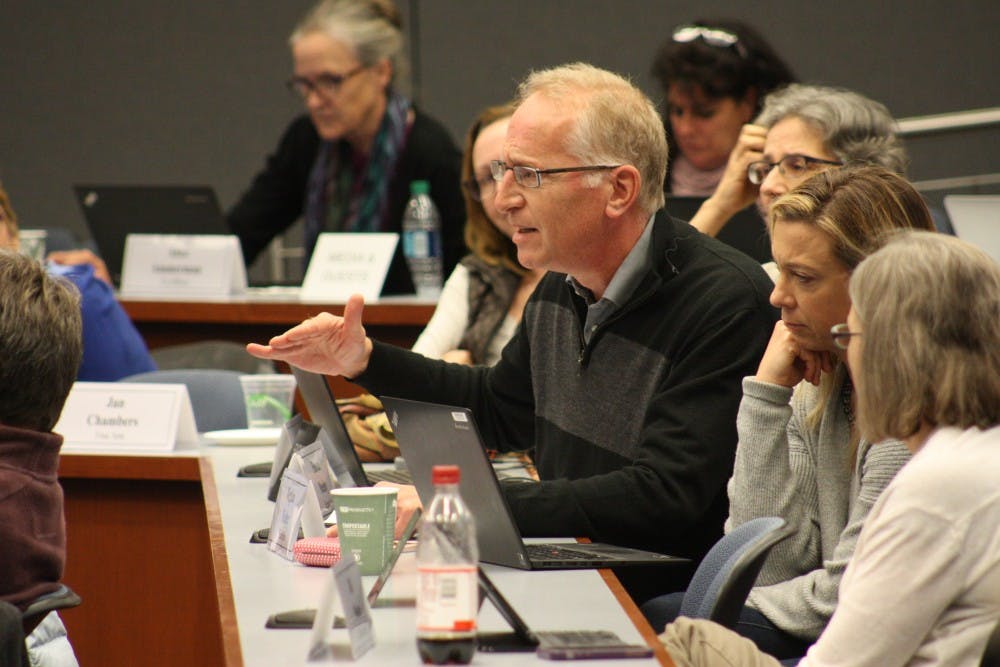The UNC-Chapel Hill Faculty Council approved a new attendance policy on Feb. 9. The old policy had not been holistically reviewed since its implementation in 1957.
Joy Renner, a Faculty Council member, and Deborah Clarke, consultant to the Provost, wrote the revised policy, which will be implemented in Fall 2018, with the help of representatives from the student government. It passed both the Educational Policy Committee and the Faculty Council unanimously.
“We hope this will bring about better and fair assessments of student performance in class,” Clarke said. “What was happening was that faculty were getting letters and notices from students from all over; a cappella concerts or a job interview or my grandmother is ill, any number of reasons why a student would need to miss class, and faculty were confused about what accommodations were required.”
Faculty are still encouraged to discuss absences with students first and look for policy clarification second. The revised policy allows students to maintain discretion with the support of the University Approved Absence Office to help with communication with teachers and professors. The office is to be introduced as the policy is implemented.
“Under the current system, these absences are approved by various departments, and many professors don’t fully understand how they’re supposed to treat students who miss class for those reasons,” said Peter Andringa, a representative for the Executive Branch of the Student Government to the Faculty Council.
Confusion among faculty and students is not the only reason for policy revision. Renner noted that legal and population changes left the current policy out of date.
“The new one is comprehensive in that it provides links to the offices which handle the legal responsibilities for the University in regards to class absences and provides clear process and responsibilities for students and faculty,” Renner said.
Varsity athletes, pregnant students and those undergoing family and medical emergencies benefit from the policy's time-saving process.
Balancing the rights of students and teachers is one of the primary goals of the revised policy. Andringa hypothesized that professors will likely continue to use programs like Poll Everywhere and give students a certain number of no-questions-asked absences. The new policy emphasizes that instructors maintain their own attendance policies, and that the University Approved Absence Office should only be involved when a student feels treatment is unfair or an instructor requests further clarification.




